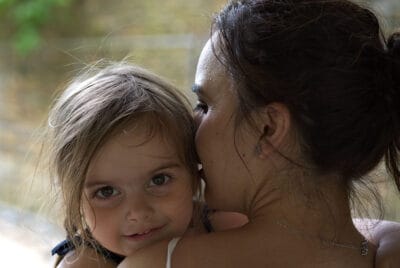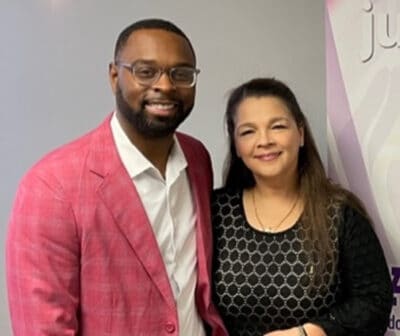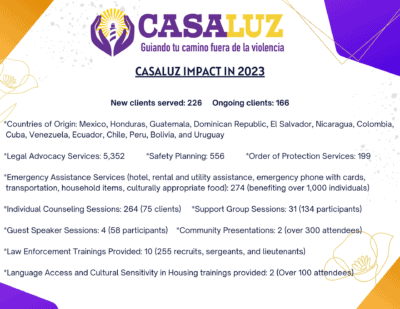CSSP Institute 2024 – The Power of Story
When I received an email from the CSSP Institute requesting proposals for the 2024 CSSP Institute, I thought it was a great opportunity to share with other culturally specific organizations and advocates my uphill journey as a “Latina Advocate in the South”. They have also been dealing with many challenges while navigating waters infested by discrimination, retaliation, biases, and anti-immigrant practices when providing linguistically and culturally specific services to Hispanic/Immigrant victims of domestic violence and other violent crimes. I contacted one of my close partners Cannon Han, an Attorney and Senior Program Manager at API-GBV, to co-present with me. His unwavering support throughout the years, strong values, and passion for fighting for justice for vulnerable victims/survivors have made him an amazing mentor to many advocates and others working in this field. He has been a witness to some of the challenges and injustices I have faced. Unfortunately, due to a previous commitment, he couldn’t join me to present at the National CSSP Institute 2024, but I know other opportunities will come our way in the future.
My proposal was accepted as follows: “We are thrilled to inform you that your proposal has been accepted for the 2024 CSSP Institute! Congratulations on this achievement! Your proposal was selected out of lots of outstanding proposals. Your dedication to our field truly stood out, and we are excited to have you join us for this year’s Institute”. For me, having the support of people and agencies who understand the ongoing hardship, lack of vacation/time-off, and personal ordeals that we as Latina advocates face leading culturally specific organizations while we are groundbreakers in a new field, means a lot, and keeping in mind that usually, the main support we receive to do our work comes from those located outside of the area where we work. They have a more open-minded perspective and respect for the laws that protect our immigrant clients and our communities.
Advocacy in any field has many challenges. In addition, Immigrant advocates who know English as a second language also become targets for wolves in sheep’s clothing using their biased conduct to bully others at a disadvantage, skirting accountability to abuse vulnerable/scared/Immigrant victims/survivors and the advocates who dare to report them. Culturally specific organizations serving underserved, marginalized, and vulnerable populations have to deal with extra barriers, including a lack of supervision, and lack of accountability inside agencies that are recipients of federal funding and who should serve every client/victim/survivor who comes to them equally with dignity and respect. Instead, they often decide to use their biases and anti-immigration views against us, meanwhile, they are getting away with free passes. Latin@s advocates journeys’ are not just difficult and isolated, but we and the people we serve belong to the biggest and fastest-growing minority community in the USA. Still, day after day, their legal rights are being shamelessly infringed. Until acknowledgment of wrongdoing is addressed, and correction/disciplinary actions are taken the cycle will continue to circle around and around and vulnerable victims are being re-victimized and left behind.
The presentation was based on sharing my experiences, the resistance, and the retaliation I have encountered. In other words, what happened to me, how I fought back while pushing for system changes, and then how those results brought positive changes to benefit our clients and the Limited English Proficiency (LEP) Hispanic/Immigrant communities in the Memphis/Shelby County area. The presentation reflects not just my story, but the reality many advocates have to deal with, and maybe other’s experiences are less harsh as they have stepped back before got worse. It’s a scary journey for advocates who don’t take a NO as an answer and are determined to expose the treatment they have received from those who should be partners in a common goal of serving those in need of our services. I also, shared how many of them were not used to dealing with stubborn Latina advocates and their first responses were in default reacting as adversaries but how along the way has become close partners, supporters, and allies after they realized I was not going to go away.
Hearing feedback from fellow advocate attendees was motivating, especially when some of them shared with me how inspired they felt knowing that they were not alone on their journeys, others shared how passionate advocates who have been unsupported in their agencies have decided to leave due to the strong pushback they received, others told me that they would like to push for changes but are scared. Being able to share my story and knowing that my experience can be used as a roadmap to guide advocates, especially immigrant advocates, is rewarding. Some advocates have reached out to meet for further discussions and advice. My favorite moment was when an immigrant advocate told me that for the first time, she felt understood when I shared with them one of my quotes based on what I told an officer who was mocking my accent when I was reporting the misconduct of another officer: “I have an accent in my voice, but not in my brain”.
Overall, it was a great conference! The CasaLuz team was able to meet and network with peers in a welcoming and supportive environment. We heard from amazing women leaders and experts in the field like Rosie Hidalgo, Director of the Office on Violence Against Women (OVW), and Michelle Brickley, OVW Associate Director, and from grant program specialists, and all the OVW staff who, with their ongoing understanding, support, and hard work, make it possible for culturally specific organizations to do the impactful work we do in areas that aren’t ready neither interested to properly, culturally and linguistically serve the communities we represent.


